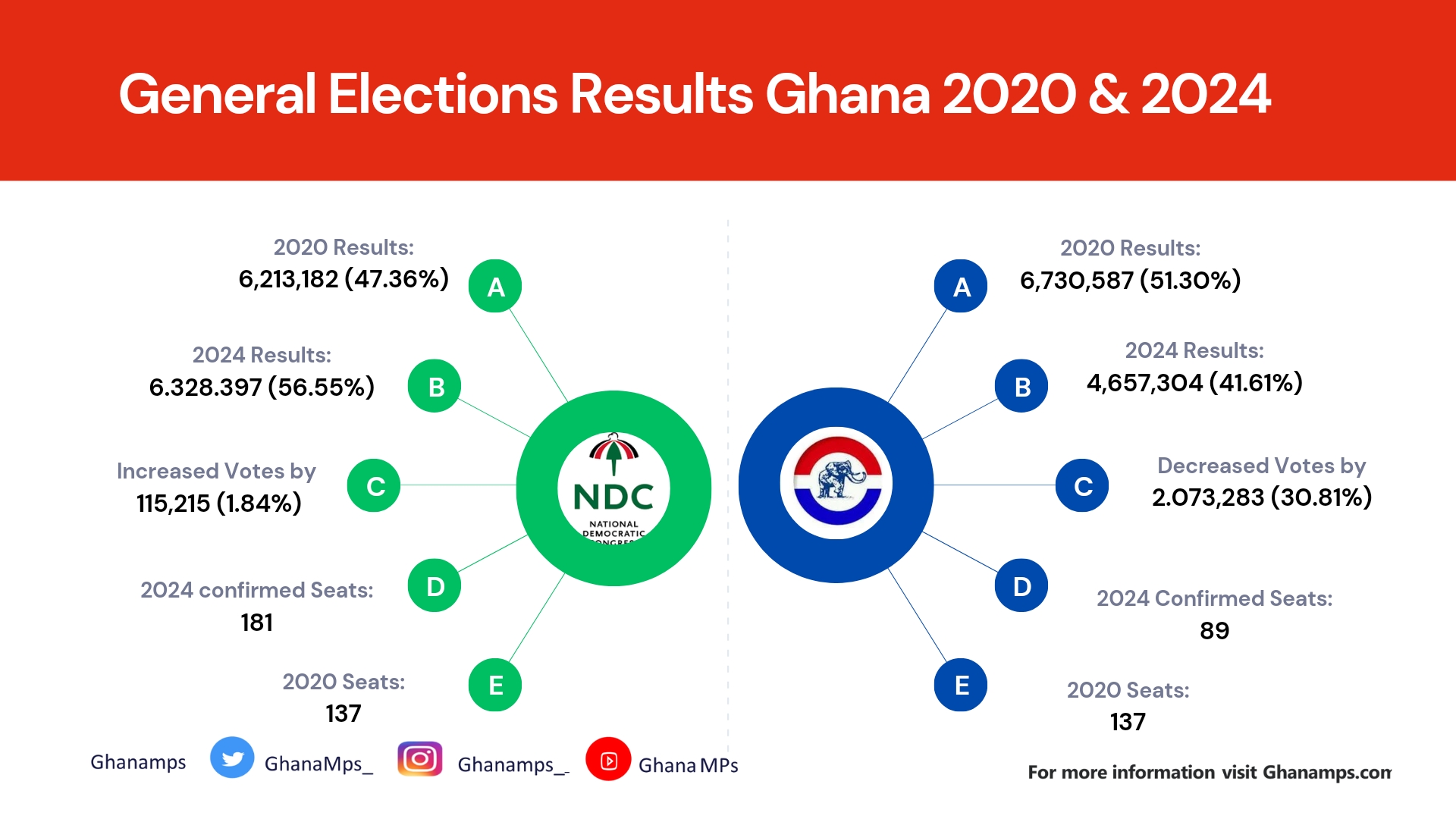
In a remarkable turn of events, Ghana’s 2024 general elections have concluded with the National Democratic Congress (NDC) achieving a significant victory over the New Patriotic Party (NPP). This outcome reflects a dramatic shift in the nation’s political landscape, as the NDC not only increased its vote share but also secured a dominant majority in Parliament.
Though the EC is yet to release the full complement of the total votes in the presidential elections because of some outstanding constituencies yet to be received, the EC attests that not even all that figure added to the NPP’s candidate will change the outcome. In similar vein, there are some parliamentary results yet to be declared.
The NDC garnered 6,328,397 votes, translating to 56.55% of the total valid votes cast. This marks an increase of 115,215 votes (1.84%) compared to their 2020 performance, where they obtained 6,213,182 votes (47.36%). The party’s parliamentary seats also saw a substantial rise, with the NDC winning 181 seats in 2024 per the 274 out of 276 constituencies so far declared, compared to 137 in 2020, solidifying their control in the legislative arm of government.
On the other hand, the NPP experienced a significant setback, securing only 4,657,304 votes (41.61%) in the 2024 elections—a steep decline of 2,073,283 votes (30.81%) from their 2020 tally of 6,730,587 votes (51.30%). This loss translated into a reduced parliamentary presence, with the NPP retaining only 89 seats per the 274 out of 276 constituencies , a sharp drop from the 137 seats they held in 2020.
The results mark a pivotal moment in Ghana’s political history. The NDC’s increased dominance signals a renewed mandate to lead, potentially altering policy directions across key areas such as economic management, education, and infrastructure development. Conversely, the NPP’s decline suggests a need for introspection and recalibration as they transition to the opposition.
The election outcome has sparked diverse reactions across the country. Supporters of the NDC have celebrated their party’s return to power with calls for immediate action to address pressing socio-economic issues. Meanwhile, analysts attribute the NPP’s losses to various factors, including voter dissatisfaction and changing political dynamics.
As Ghana ushers in a new political chapter, the focus now shifts to how the NDC will utilize its renewed mandate to address the nation’s challenges. For the NPP, the task ahead involves rebuilding trust and re-establishing their connection with the electorate.
The 2024 elections underscore the vibrant nature of Ghana’s democracy, reflecting the will of the people and setting the stage for the country’s future governance.